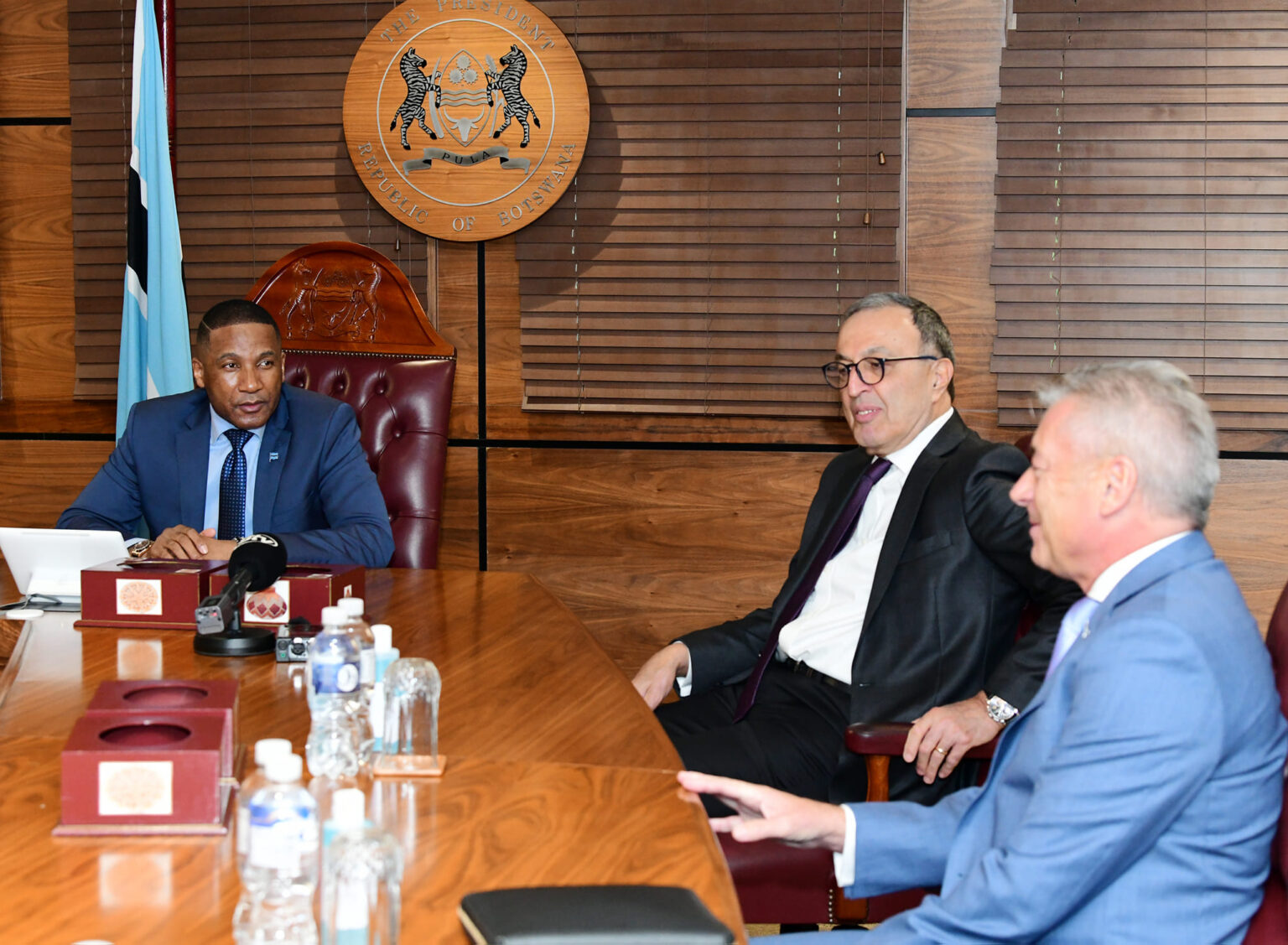President Advocate Duma Boko has underscored the urgent need to leverage technology and accelerate the digitalisation of Botswana’s economy as key pillars for revitalising the country’s economic landscape.
Speaking during a courtesy call by World Bank Group Executive Director, Dr Zarau Kibwe, in Gaborone yesterday, President Boko noted that significant national resources had been lost due to inefficiencies and wastage—issues he argued were often mistaken for corruption.
“There is a substantial chunk of our resources that goes down the drain—not even due to corruption, which is a factor—but due to inefficiency and wastage. If we pivoted on technology, we would curb a lot of that wastage. That is very important for us,” he stated.
President Boko emphasized that digitalisation could transform how government operates, enabling more efficient communication and improving transparency. He noted that public dissatisfaction often stems from a lack of reliable information and engagement.
“When people lack access to information, they begin to speculate and become susceptible to fake news. They get agitated. We need to keep them fully informed—not just by sharing information, but by engaging them as well,” he explained.
He said digitisation would enable meaningful public participation, giving citizens the chance to contribute their ideas and understand government processes better. This, he added, was vital to rebuilding trust and strengthening governance.
Once fully implemented, the President said digitalisation would also allow the government to secure and disseminate information through a structured freedom of information framework.
“Information would be readily available, and you’d have access from wherever you are. It also helps us from an economic point of view. That is why, in my view, technology and the digitalisation of the economy becomes a critical pivot point for us,” he said.
President Boko further highlighted the broader impact of technology on social services, pointing to potential improvements in education and healthcare through e-learning platforms and telemedicine solutions.
He described digitalisation and technological integration as non-negotiable strategies in Botswana’s plan to build a resilient and responsive economy.
“We value your partnership and support,” he told Dr Kibwe. “You know what works and what doesn’t. We would be ready to receive your guidance and wise counsel as we strive to transform the economy.”
The President revealed that the government had set an ambitious three-year timeline to implement key reforms. However, he acknowledged the challenges involved, including outdated legislation and institutional systems that were not originally designed to support a fast-paced, digital-first economy.
“We need to wrestle with these concepts while addressing a population that has waited too long for basic services. These are the challenges we must confront and resolve,” he added.
President Boko congratulated Dr Kibwe on his appointment as the World Bank Group Executive Director, a role in which he represents Botswana and 21 other nations at the World Bank’s board. He expressed hope for continued collaboration with the World Bank as Botswana embarks on its digital transformation journey.
In his remarks, Dr Kibwe, who was accompanied by Acting Minister of Finance Mr Shawn Ntlhaile, acknowledged the need for the World Bank to refocus its support in Africa toward creating more youth employment opportunities. He identified five priority sectors for job creation: healthcare, tourism, infrastructure, manufacturing, and agribusiness.
Dr Kibwe wished President Boko success in achieving his vision and applauded the administration’s human rights-oriented approach to governance.
As Botswana looks ahead, the strategic embrace of technology and digital infrastructure may well become the cornerstone of a more inclusive, transparent, and efficient economy.









